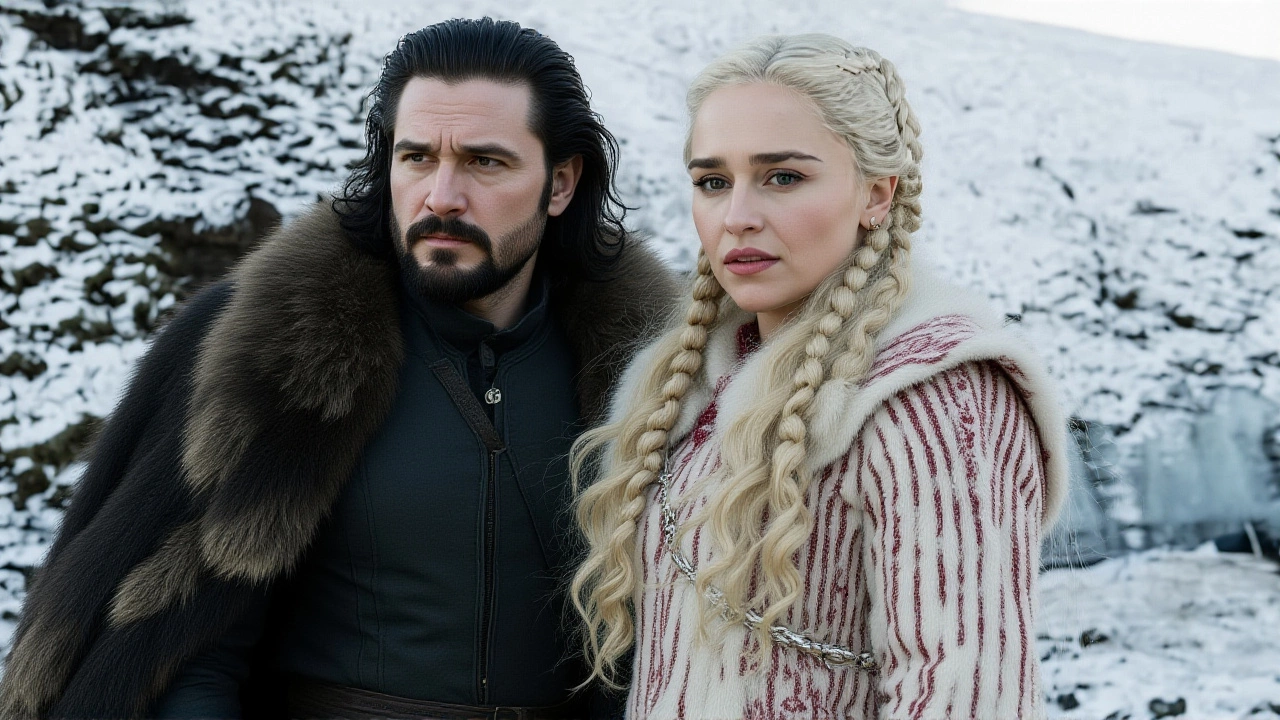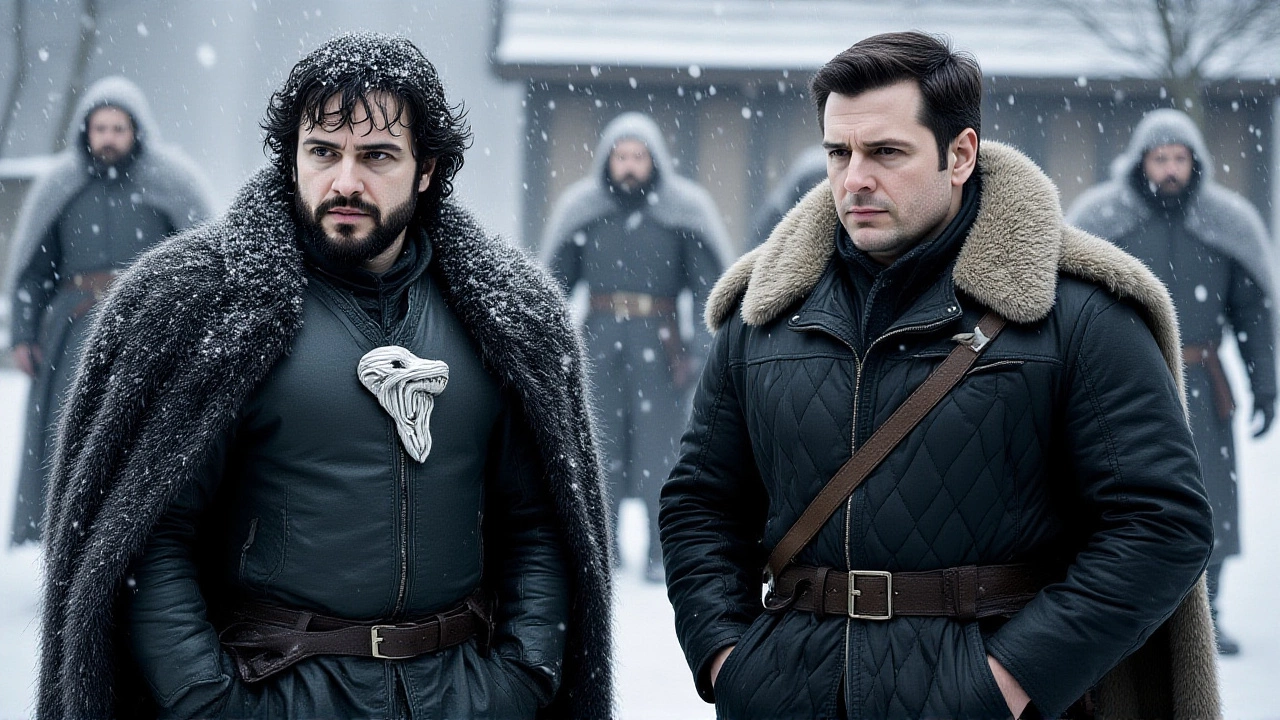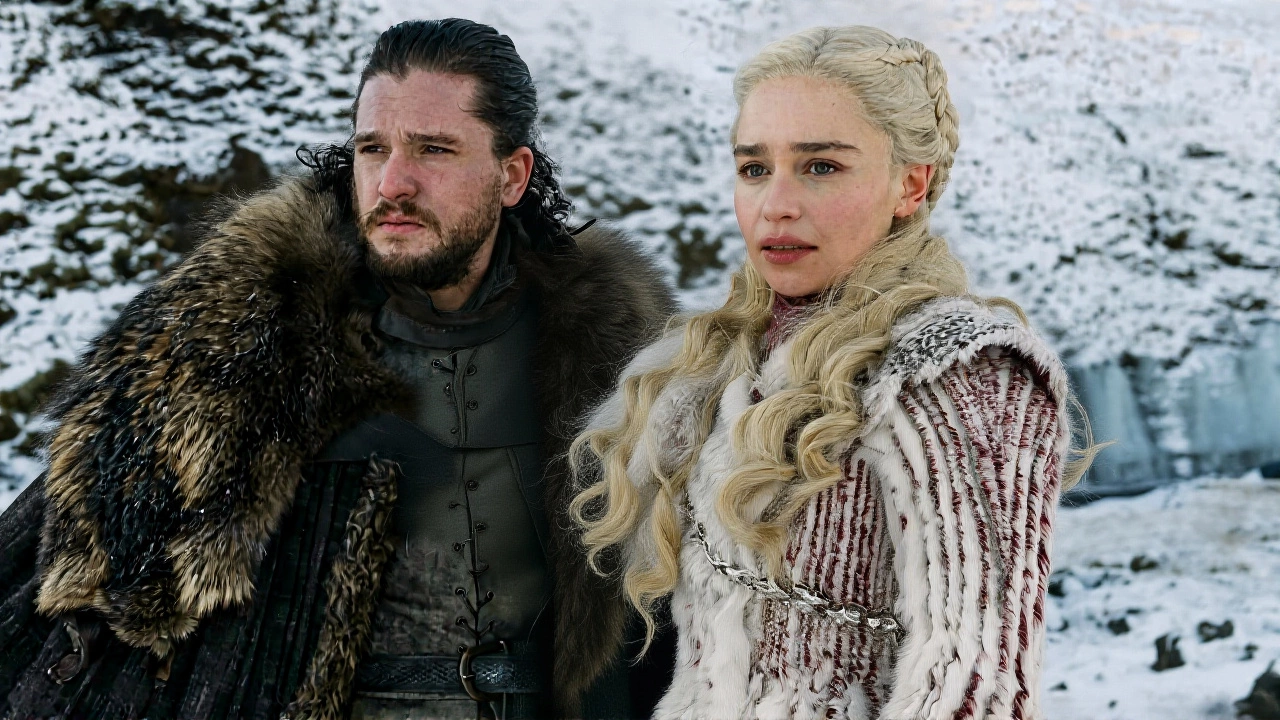It’s official: George R.R. Martin isn’t done with Westeros — not by a long shot. During a candid panel at the Iceland Noir FestivalReykjavík in November 2025, the 76-year-old author dropped a bombshell: HBO is developing at least one, possibly two, Game of Thrones sequel series set after the events of the original show’s controversial finale. "There’s a sequel or two," Martin told the crowd, his voice carrying the quiet authority of a man who’s spent decades shaping the fate of dragons and dynasties. The announcement stunned fans who’d long assumed HBO’s focus would remain strictly on prequels like House of the Dragon and A Knight of the Seven Kingdoms. But now, the story isn’t just going backward — it’s moving forward.
From Prequels to Sequels: A Strategic Pivot
For years, HBO leaned hard into the past. House of the Dragon, which premiered in August 2022, revived the franchise with a gritty, blood-soaked retelling of the Targaryen civil war known as the Dance of the Dragons. Based on Martin’s 2018 book Fire and Blood, the series became a critical and commercial hit, drawing over 10 million viewers in its first week on HBO Max. Its success didn’t just save the franchise — it reshaped it. Suddenly, the network wasn’t just repairing damage from the widely panned Season 8 of the original Game of Thrones (which ended in May 2019). It was building a multiverse.Now, with House of the Dragon renewed through Season 3 (scheduled for 2028) and A Knight of the Seven Kingdoms — adapting Martin’s Dunk and Egg novellas — set for its second season in 2027, HBO is doing something unprecedented: releasing multiple Game of Thrones series in the same year. HBO, headquartered at 30 Hudson Yards in New York City, is betting big on its most valuable IP. CEO David Zaslav, who took the helm after the WarnerMedia-Discovery merger in April 2022, has made the franchise a cornerstone of the company’s streaming strategy. And this isn’t just about money. It’s about redemption.
What Could the Sequel Series Explore?
What does a sequel set after the final episode even look like? Martin didn’t give specifics, but industry analysts and fan theories are already racing ahead. The most compelling possibilities revolve around characters left dangling after the series finale. What happened to Bran Stark, the broken boy who became king? Is his rule stable, or is the North quietly plotting secession? Could Sansa Stark, now Queen in the North, be preparing to break away permanently? And what of Arya Stark, who sailed west of Westeros in the final scene? Is she exploring uncharted lands — or did she vanish into myth?
Then there’s Jon Snow. He’s living beyond the Wall, but the Night’s Watch is gone. Is he a hermit? A legend? A prisoner of his own name? The original series never answered these questions. A sequel series could finally give them weight — not as fan service, but as emotional inquiry. One rumor, echoed by Screen Rant, suggests the new show might even revisit the political chaos that followed Daenerys’s fall — the trial of Tyrion, the coronation of Bran, the uneasy peace between the Iron Islands and the Reach. It’s not just about what happened. It’s about what happens when the dragons are gone and the people are left to pick up the pieces.

Behind the Scenes: Who’s Still In, Who’s Out
Here’s the twist: the original architects of Game of Thrones — David Benioff and D.B. Weiss — are not involved. Neither are directors David Nutter or Alan Taylor. That’s significant. It means this isn’t a nostalgic rehash. HBO is handing the keys to a new team, likely one that understands the weight of the story’s legacy. Martin, still serving as co-executive producer on House of the Dragon, will likely play a guiding role — but the vision belongs to others now.
Meanwhile, production on House of the Dragon Season 3 is already underway. According to fan-leaked production notes, the season opens with "the infamous battle in the gauntlet" — described as the bloodiest sea battle in Westerosi history. Expect dragonfire over the Narrow Sea, ships burning, and the fate of the Iron Fleet hanging in the balance. Locations like Dragonstone, Harrenhal, and King’s Landing will remain central, but new settings like the market town of Tumbleton and the mysterious Alphaces island are expected to feature prominently. The show’s creators are clearly building toward something larger than a season finale — they’re building a saga.
Why This Matters Beyond Fantasy Fans
This isn’t just about dragons and direwolves. It’s about how media companies handle legacy franchises after missteps. HBO didn’t ignore the backlash to Season 8. It didn’t double down on it. It didn’t just make another prequel. It chose to look forward — to confront the unresolved threads, the unanswered questions, the characters whose arcs were cut short. That’s rare. Most studios would’ve milked the past until it dried up. HBO is daring to imagine what comes next.
Compare it to Amazon’s The Rings of Power or Netflix’s The Witcher. Both are ambitious, but neither has the same narrative weight or fan investment. Game of Thrones didn’t just entertain — it shaped pop culture. And now, HBO is giving its audience the chance to see how that world endures. Not as a reboot. Not as a remake. But as a continuation.

What’s Next?
Expect official announcements by early 2026. Production on the sequel series is likely to begin in late 2026 or early 2027, with a 2028 or 2029 release window. Meanwhile, A Knight of the Seven Kingdoms is scheduled to premiere in 2026, followed by House of the Dragon Season 3 in 2028. And don’t forget the Aegon the Conqueror prequel — still in development — which will dive into the founding of the Seven Kingdoms nearly 300 years before the original series.
For fans, this is more than news. It’s validation. After years of waiting, wondering, and sometimes grieving, the story isn’t over. It’s evolving.
Frequently Asked Questions
Will the sequel series feature characters from the original Game of Thrones show?
Yes, though likely through flashbacks, archival footage, or legacy characters. Actors like Kit Harington (Jon Snow) and Emilia Clarke (Daenerys) are unlikely to return in full roles, but younger actors may portray their descendants, or characters like Bran Stark, Sansa Stark, and Arya Stark could appear as older, more complex figures. The show may explore how their legacies shaped Westeros’s new political order.
Why is HBO making sequels now instead of more prequels?
After the backlash to Season 8, HBO realized fans didn’t just want more history — they wanted closure. House of the Dragon proved the audience still craved Westeros, but the sequel series offers a chance to address unresolved arcs like Bran’s kingship and Arya’s voyage. It’s a strategic pivot from nostalgia to narrative accountability.
Is George R.R. Martin writing the sequel series himself?
No, Martin is not writing the scripts, but he’s serving as a consultant and co-executive producer. He’s focused on completing The Winds of Winter, the long-awaited next novel in his series. The TV writers’ room will likely draw from his world-building notes and unpublished material, but the storytelling will be handled by new showrunners under HBO’s guidance.
How does this affect HBO Max’s streaming strategy?
HBO Max (now rebranded as Max) will become the first platform to stream multiple Game of Thrones series simultaneously in a single year — A Knight of the Seven Kingdoms in 2027, House of the Dragon Season 3 in 2028, and the sequel series likely in 2029. This locks in subscribers, increases ad revenue, and positions HBO as the definitive home for high-budget fantasy TV.
Could the sequel series adapt material from Martin’s unpublished books?
Possibly. While the main plot will be original, writers may incorporate lore from Martin’s unpublished notes on the post-war era, including the fate of the Iron Throne’s remnants, the role of the Faith Militant, and the rise of new houses. Martin has hinted that the world continues to evolve after the events of the original series — this could be the first glimpse.
When will we get an official trailer or cast announcement?
HBO typically releases first trailers 8–10 months before a premiere. If production starts in late 2026, expect a teaser in late 2027, with a full trailer in early 2028. Casting rumors are already swirling — particularly around actors who could portray older versions of Arya or Sansa, or new characters tied to the Iron Islands’ resurgence.
